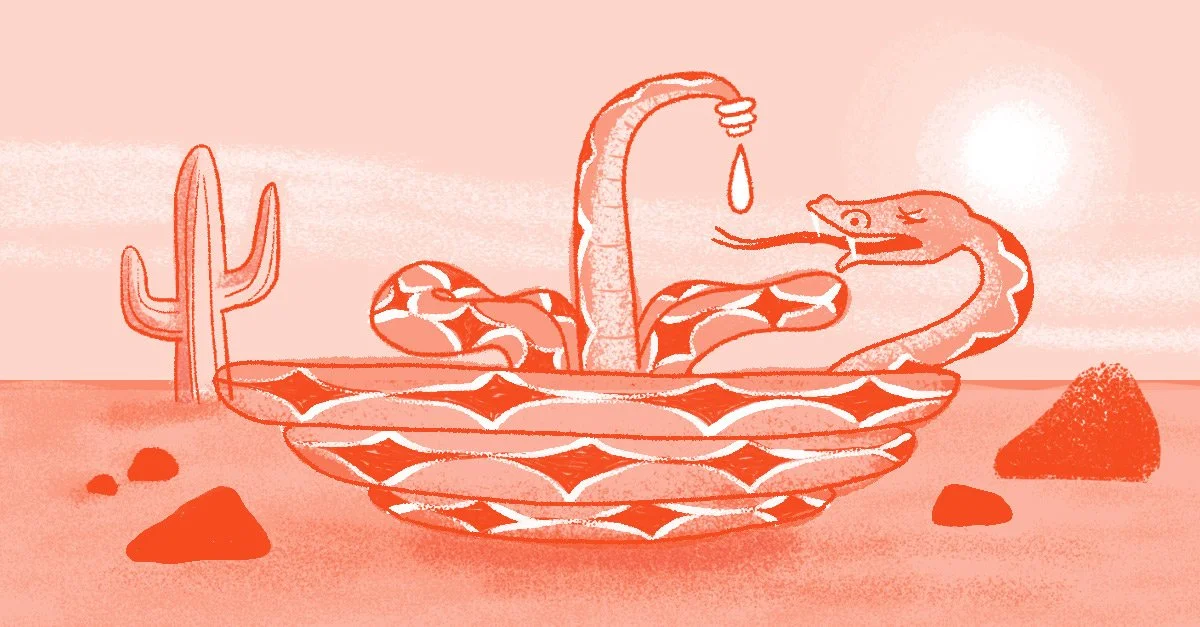Snakes Have Ideas Too
Problem
How do prairie rattlesnakes living in super-dry conditions get enough drinking water?
insight
If your body can twist into any shape, what would be the perfect shape for collecting water?
idea
Snakes behaving like bowls. Prairie snakes coil themselves into a shallow dish to collect the rain. Researchers watched snakes not only drink off their own flattened bodies but also take sips from neighbors—particularly in large groups. Some snakes could cantilever their coiled body out over ledges to catch the rain; others would tip their entire bodies forward to pour the water into their mouths.
Sources: Herpetologist Scott Bobcat’s Study of Prairie Snakes

